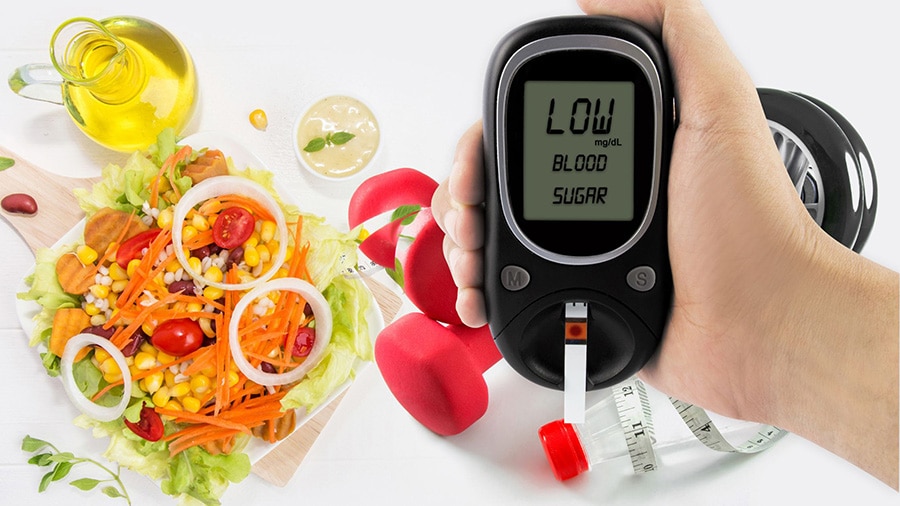The diabetes is a chronic disease that affects nearly 4 million people in France. It is characterized by abnormal glycemia, i.e. a blood sugar level that is too high. While physical exercise is largely beneficial for diabetics, it can also have negative effects if it is not adapted. So how can we reconcile a physical activity How do you deal with your illness on a regular basis? What diet should I adopt? Here are some tips.
What is diabetes?
Diabetes is a pathology defined by too much sugar in the blood.
Thus, according to the French Federation of Diabeticsthe blood glucose (or glucose level) of a diabetic patient is higher than 1.26 g/l: this is called hyperglycemia.
But there are really two types of diabetes.
90 % of people with diabetes are affected by what is called type 2 diabetes. In this case, diabetic patients do produce insulin, but it does not regulate the amount of sugar in the blood.
More rare, the type 1 diabetes is said to be insulin-dependent. This means that people with the disease must take daily injections of insulin to make up for the lack of activity in their pancreas. They usually wear an insulin pump, a device designed to monitor glucose levels and deliver small doses of insulin.
Diabetes and physical activity: are they compatible?
But then, does living with diabetes prevent you from achieving your athletic goals?
No, on the contrary. Diabetes and sport are completely compatible! Regular physical activity helps control diabetes.
The benefits of sports practice for people with diabetes are numerous:
- better control of blood sugar levels, which can lead to a reduction in the dosage of medication
- weight loss, which is essential to increase insulin sensitivity
- a reduction in the risk of developing cardiovascular disease, which is greater in the case of diabetes
Sport is also ideal for preventing diabetes.
In summary, regular physical activity helps control blood sugar, maintain weight and prevent complications related to the disease. However, it is important to choose an appropriate activity.
The strength trainingFitness and endurance sports (walking, running, cycling, swimming, etc.) are particularly recommended for diabetes management.
Diabetes and diet
Just like sports, a good diet is effective in treating diabetes.
To limit the effects, the diet must be carefully planned. It is imperative to calculate the caloric need and themacronutrient intake (carbohydrates, proteins and lipids).
Indeed, a balanced diet and good hydration help to relieve the metabolism. In the medium term, this reduces the risk of serious complications such as heart, kidney or eye problems.
Diabetologists recommend eating 3 meals and 1 snack daily and eating a variety of foods: meat, fish or eggs for protein, starchy foods, fruits and vegetables and dairy products.
It is also important to choose foods that will help controlglycemic index and avoid saturated fats.
Why use a sports coach if you have diabetes?
Do you suffer from diabetes and want to achieve an ambitious sports goal?
Whether it is to gain muscle mass or to lose weight, the personalized follow-up of a sports coach will allow you to do so.
Coaching sessions will help you define your training program and eating plan.
As a professional sports coach for many years, I have accompanied several students suffering from type 1 and type 2 diabetes to help them improve their health and transform their physique.
You will benefit from valuable advice, a training program adapted to your situation and a complete dietary follow-up so that your diet will never again jeopardize your health.









